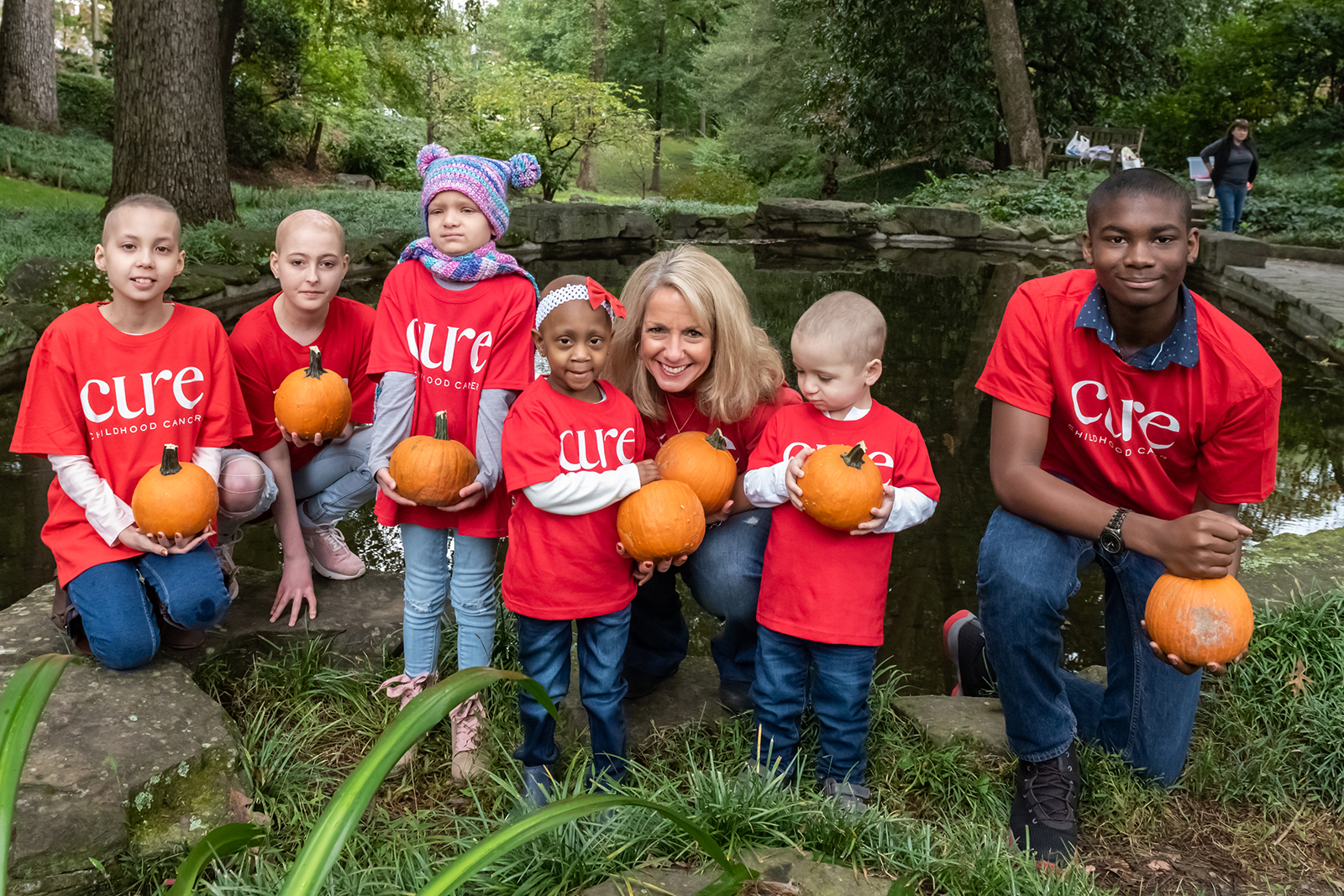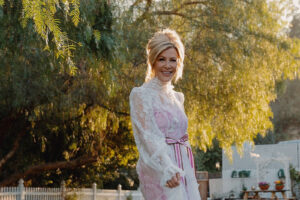It’s every parent’s worst nightmare; hearing the words, “Your child has cancer.” But for CURE Childhood Cancer CEO Kristin Connor, that nightmare became a reality in October 2001, when her youngest son was diagnosed with neuroblastoma at only one-month-old.
Thankfully, Connor’s son has been cancer-free since November 2003, but the experience propelled her to seek answers about the scope of pediatric cancer in the U.S., and what she could do to help. “Seeing what other children were going through [and] making friends with other moms; watching children go through bone marrow transplants and then, unfortunately, having friends whose children didn’t make it — that was life-changing for me,” says Connor.
CURE Childhood Cancer is an Atlanta-based organization dedicated to providing research funding and support for childhood cancer patients and their families. According to CURE, more than 17,000 children in the U.S. are diagnosed with cancer every year. In the last 25 years, only six drugs have been developed and approved specifically for children, and cancer is the leading cause of death by disease in children.
Connor doesn’t think it has to be this way. “When we got to the other side and my son was cancer-free, I started researching, what are we doing as a nation about this problem of pediatric cancer?” says Connor. “If it’s the leading cause of death by disease, what are we doing as a nation?”
As reported by the National Pediatric Cancer Foundation, only four percent of the money the government spends on cancer research goes toward treating childhood cancer. “I was shocked by that,” says Connor. “I expected it to be different, and when I learned [that statistic], I just couldn’t let it go. I needed to do what I could.”
The need to help other patients and families experiencing childhood cancer is what led Connor to join CURE in 2006. She was only the third person to be a part of the organization, and they had a relatively small budget — only about $800,000. CURE’s current budget is $9.2 million, and the organization just gave $4.7 million toward research grants to doctors and researchers paving the way in childhood cancer research.
Dr. Robert Craig Castellino, a pediatric hematologist/oncologist and associate professor of pediatrics at Emory University School of Medicine, has received over $1.2 million in funding from CURE since 2008. His focus is on improving treatment methods for medulloblastoma, the most common type of malignant brain tumor in children.
Castellino and his team have identified at least four subtypes of medulloblastoma through research funded by these grants, with special focus on the most aggressive subtype. “My focus, as well as a lot of other people in this field, is to try and develop better treatments for this subtype of medulloblastoma,” Castellino says. “I’m particularly focusing on two specific gene changes and trying to use drugs to understand how those gene changes promote tumor growth.” He hopes this research will be critical in developing therapies that target aggressive medulloblastoma in patients.
Without the generosity of foundations like CURE, Castellino’s advancements in childhood cancer research would not be possible. “[CURE] has allowed me to fund my research and do what I love, which is to understand the way tumors develop and to use models that we generate in the lab to develop new ways of treating children,” he says.
CURE’s investment in cancer research over the last 16 years totals more than $38 million, with more than $10 million going toward two specific organizations — the Precision Medicine Program at the Aflac Cancer and Blood Disorders Center at Children’s Healthcare of Atlanta and to the Target Pediatric AML Project.
Advancing precision medicine, or gene-based therapy, is one of CURE’s biggest priorities. Often in childhood cancer, treatment avenues don’t reflect the genetic differences of each child. Children with the same type of cancer may respond differently to the same treatment because of these genetic differences. With precision medicine, children whose cancers don’t respond to standard treatments or those who have high-risk tumors can undergo genetic testing on the cancerous tissue, allowing individualized treatments to be created to target and destroy the mutated cells.
“When my son was diagnosed, [precision medicine] wasn’t a thing,” Connor begins. “[There] was no sequencing of tumors, there was no understanding of genetic mutations and targeting them … I think being able to see that progress makes me feel [at] peace.” While progress is slow, Connor and other parents of childhood cancer survivors find comfort in every advancement. “I think [it] would be too much if I couldn’t see that every year we are moving the needle and making things better,” she says.
CURE also offers resources to families of children with cancer. Their website includes resources about what to bring to the hospital, advice for the newly diagnosed, financial assistance, meal programs, counseling and more.
I think being able to see that progress makes me feel [at] peace.
“CURE [has] been extremely generous to the researchers, [and] they do a lot for families,” says Castellino. “They support a lot of other endeavors that are specifically targeted toward patients. They sometimes come around on weekends or weeknights and feed all the families on the floor [of the hospital]. They’re an important organization and invaluable to the children and families in Atlanta.”
Connor hopes that CURE will continue making a difference in the lives of children and families dealing with cancer, despite the many challenges that come with the emotional aspects of childhood cancer. “I hate to see people have to face [those challenges], but I do need to know that we are making a difference, otherwise it would just be hard with no hope,” says Connor. “And there’s so much hope.”







